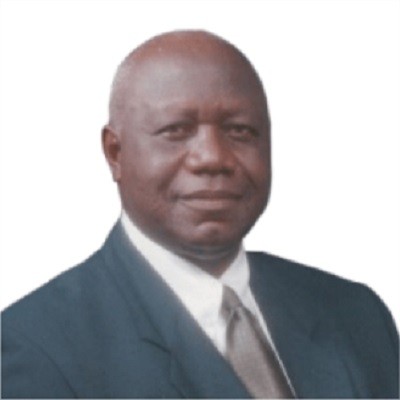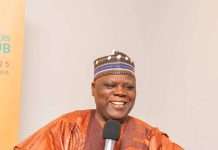
Eminent pharmacist and octogenarian founder of Bond Chemical Industries Limited, Pharm.(Chief) Adebowale Omotosho, needs little or no introduction within the Nigerian pharmaceutical landscape. He is a trailblazer in local pharmaceutical manufacturing, having ventured into full scale local pharmaceutical manufacturing in 1986, at a time when the coast was largely hazy and untested. Even more interesting is that, unlike many other companies that started in major cities and state capitals, Bond has its birthplace in the agrarian town of Awe, in Oyo State, with its attendant infrastructural challenges.
In this interview with MOSES DIKE, Omotosho reveals how he was able to surmount the challenges at that time to build the reputable brand that Bond Chemical Industries has become. He also discusses his upbringing, career choice, and issues affecting local pharmaceutical manufacturing, while also advising young professionals on how to harness the potentials of their training for the benefits of humanity. Excerpts:
Kindly tell us about yourself, your education and early childhood experiences.
My name is Adebowale Omotosho. I was born in Kano, on 29 July, 1936. I started my elementary school at Kano CMS and later moved to Jos. I left Baptist Day School, Jos, in 1952 to Keffi Government College, and left in 1958, after my School Certificate (WASSCE). I was in the School of Pharmacy, Zaria in 1959 and left for Bradford Technical College, UK, in 1961 to study for my A-Level in science subjects.
I got into the University of Bradford for my pharmacy degree and completed it in 1967. I did my internship at St. James Hospital, Leeds, and was registered as a professional pharmacist by the Pharmaceutical Society of Great Britain and Wales.
Looking back at your earlier days as a young person, did you have role models or personalities who helped to influence your choice of career, values and principles in life?
Looking back at my earlier days as a young person, the personality who helped to influence my choice of career was my distant cousin, named Deacon Oyelowo (now late). I was in Kano on holiday with my mother, between 1956 and 1957 when I met this cousin of mine who worked at Kano City Hospital as a dispenser. He trained as a chemist and druggist from old Yaba School of Pharmacy. He kept bringing different drug mixtures for my mother. I was highly impressed and wanted to study to be a chemist and druggist.
I believe that led me to Zaria School of Pharmacy for study. After two years, it was not possible anymore and so I had to go overseas to start all over. I got a job from the UAC in London and came back home in October 1968 to work for Kingsway Chemist. I worked at the Marina office and also at Benin Kingsway.
I left for Buroughs Wellcome and then Sandoz Pharmaceutical Company, as national sales manager. I left in 1977 to start my own business, which I called Bond Chemists – a community pharmacy. I later went into wholesaling and representing overseas companies.
Tell us the story of Bond Chemical Industries Limited which has grown to become one of the foremost local pharmaceutical companies in Nigeria. How did it all start and what is the vision and guiding philosophy behind its phenomenal growth?
In 1986, I decided to move into manufacturing and then called the new outfit – Bond Chemical Industries Limited. It was a strong determination, not minding what difficulties were on the way. To be honest, there were many difficulties to contend with, even in a place like Lagos. There were also difficulties in the state capitals; but in the village, there were virtually no noticeable amenities to set up a pharmaceutical manufacturing factory. We had to bring everything virtually from Lagos, including experienced workers. No one wants to stay in a rural area.
Ultimately, even the goods manufactured still had to return to the main market, which is in Lagos. I kept encouraging myself that if I could import drugs from abroad, why couldn’t I manufacture in Awe, in Nigeria, for the Nigerian market? It was not easy but I am happy we persevered and now feel quite comfortable and happy to continue in this rural setting.
What challenges did you face starting an indigenous pharmaceutical manufacturing company at a time when the coast was still very much untested and hazy? What challenges do you still face?
There were too many challenges. Imagine that there were many challenges for those who started in in Lagos and the few who started in the state capitals across the country, and we must be one of the very few who started in a rural setting. It is better imagined than recalled. No infrastructure of any kind, no road, no water or electricity to start with. No workers of other pharmaceutical companies to help. Everything – workers, raw materials, packaging materials – must be brought in from Lagos and the finished products taken back to Lagos, the main market for sale.
It was tough, very tough but we are very happy now and will not move out of the rural setting. We make sure that our quality is as good as anyone else. We have never been found wanting.
How would you like the government to address the current challenges facing the pharmaceutical industry?
We have and we shall always have more expenditure than income. The population continues to increase; so things can never be as they were. But good management of our resources, however small, will help us a long way.
Indeed, there is a lot that the government can offer in health, education etc. After all, poorer nations manage their economy better than us. We should get our priorities right, fight corruption then what we have will be enough.
As a stakeholder who is passionate about quality healthcare systems, how do you think Nigeria can meet the healthcare needs of its growing population?
The quality of the healthcare system is a job for every one of us to take a positive part in. It affects all of us; so it is our problem. We should stop buying equipment we cannot maintain. Lack of proper maintenance is one of our major problems. Everything boils down to good management.
If you were not a pharmacist, what would you be doing as a career? Aside from pharmacy practice, what other things do you have a passion for?
I had always wanted to be a pharmacist; but, on a second thought, if not a pharmacist, then maybe a farmer. Maybe because I am now in a rural area. I believe farming or going to the farm brings me close to nature and gives me inner peace. The seed that you plant first dies before it germinates. Watching all these, which can be called a miracle, brings you closer to God and gives you the belief that He lives.
Tell us a little about your family. Did any of your children take after you to study Pharmacy or other health-related professions?
I thank God for what He has done for me. I have eight children – four males and four females. Out of the males, one is a pharmacist and at the moment he is the group managing director of our industries.
Another male is a medical doctor at John Hopkins Hospital, USA. One of the females also studied Medicine at the University of Ibadan over 10 years ago. The others are in oil and gas, engineering, law, computer and business.
How do you relax? Tell us about some of the pastime activities you engage in to keep busy and fit in retirement.
Relaxation comes in various forms. I belong to many clubs and societies, whose activities help me to unwind and relax. I love listening to music and attending live shows. I also relax by watching good programmes on the television or listening to the radio. I equally enjoy and relax by travelling to neighbouring villages and cities.
Finally, what advice would you give to the younger generation of pharmacists, some of whom were your students, on how to make the best use of their calling as healthcare professionals to impact humanity positively?
Times are changing. The youths must change with time. Be abreast of all developments. Never stop learning. This is the age of computer technology; don’t be left behind. Above all, be honest and dedicated to your work; work very hard and be focused on whatever you do.










